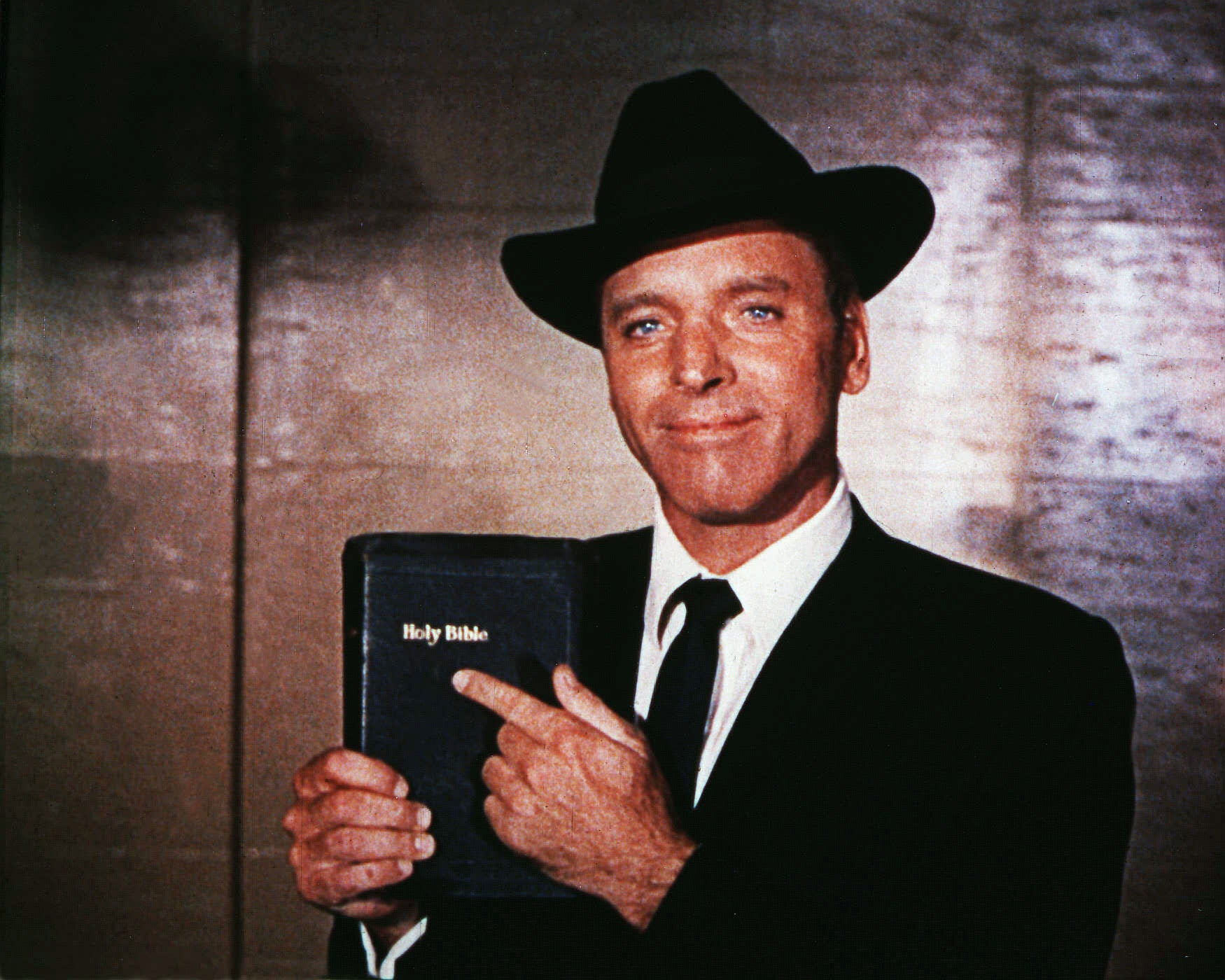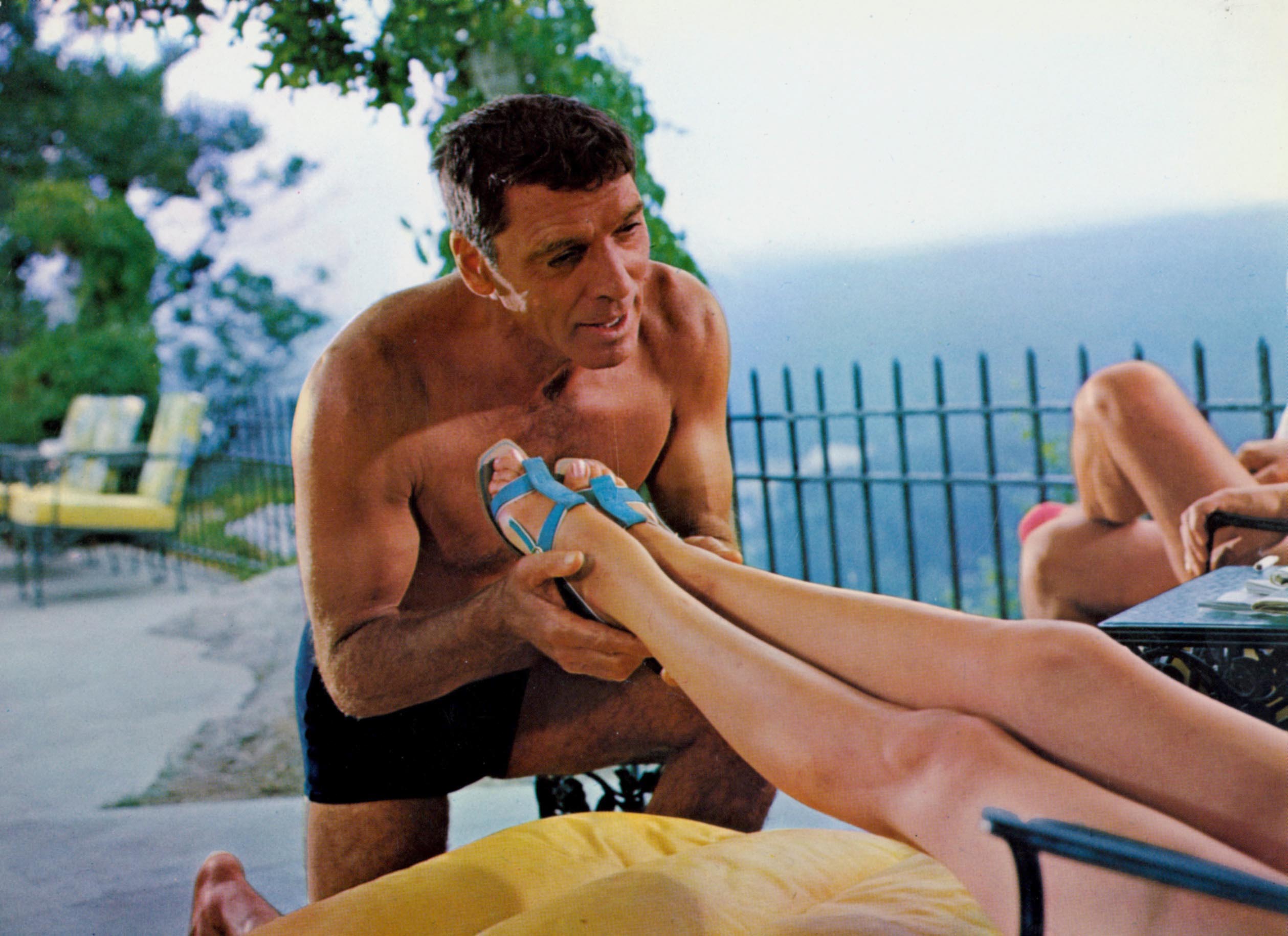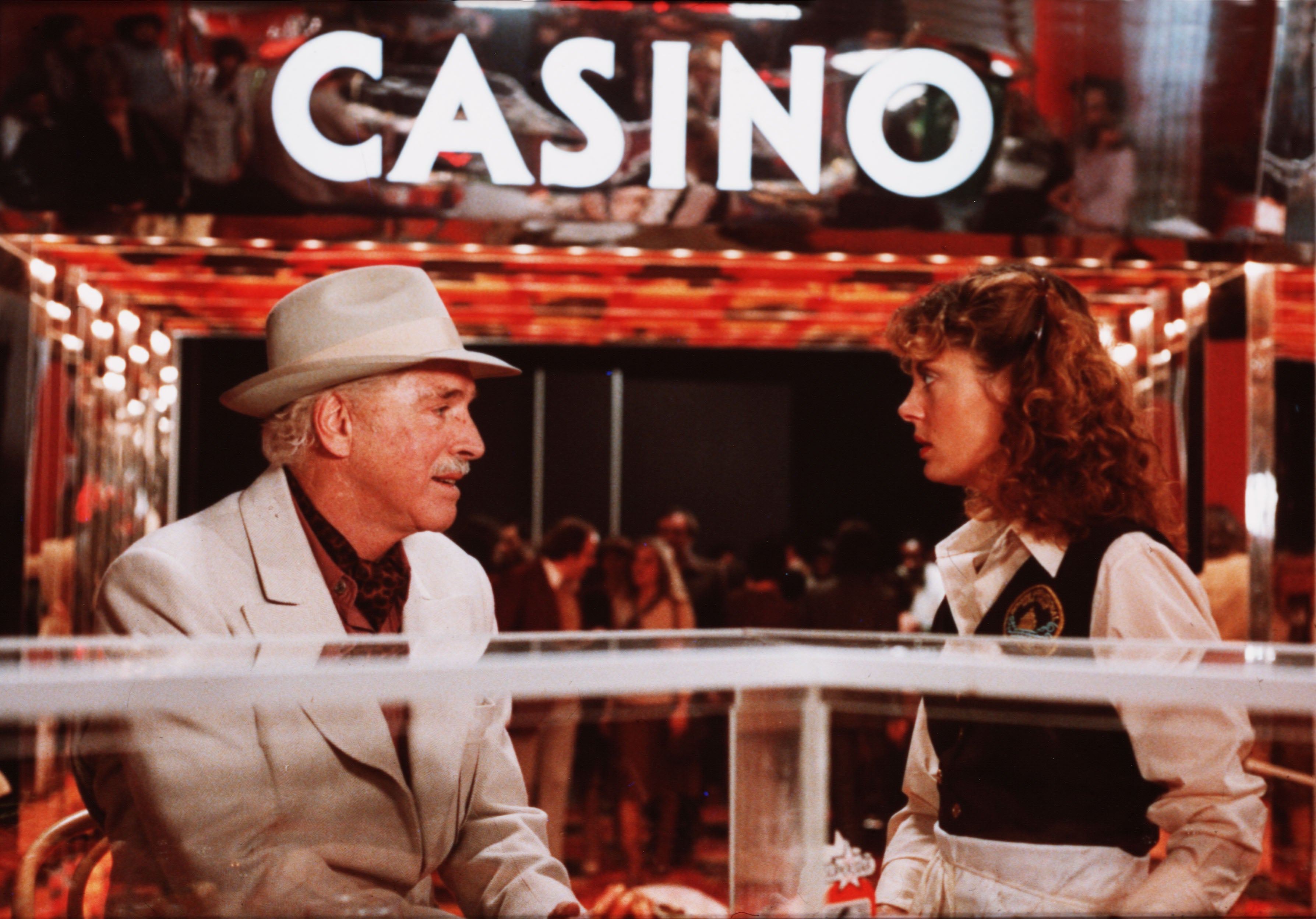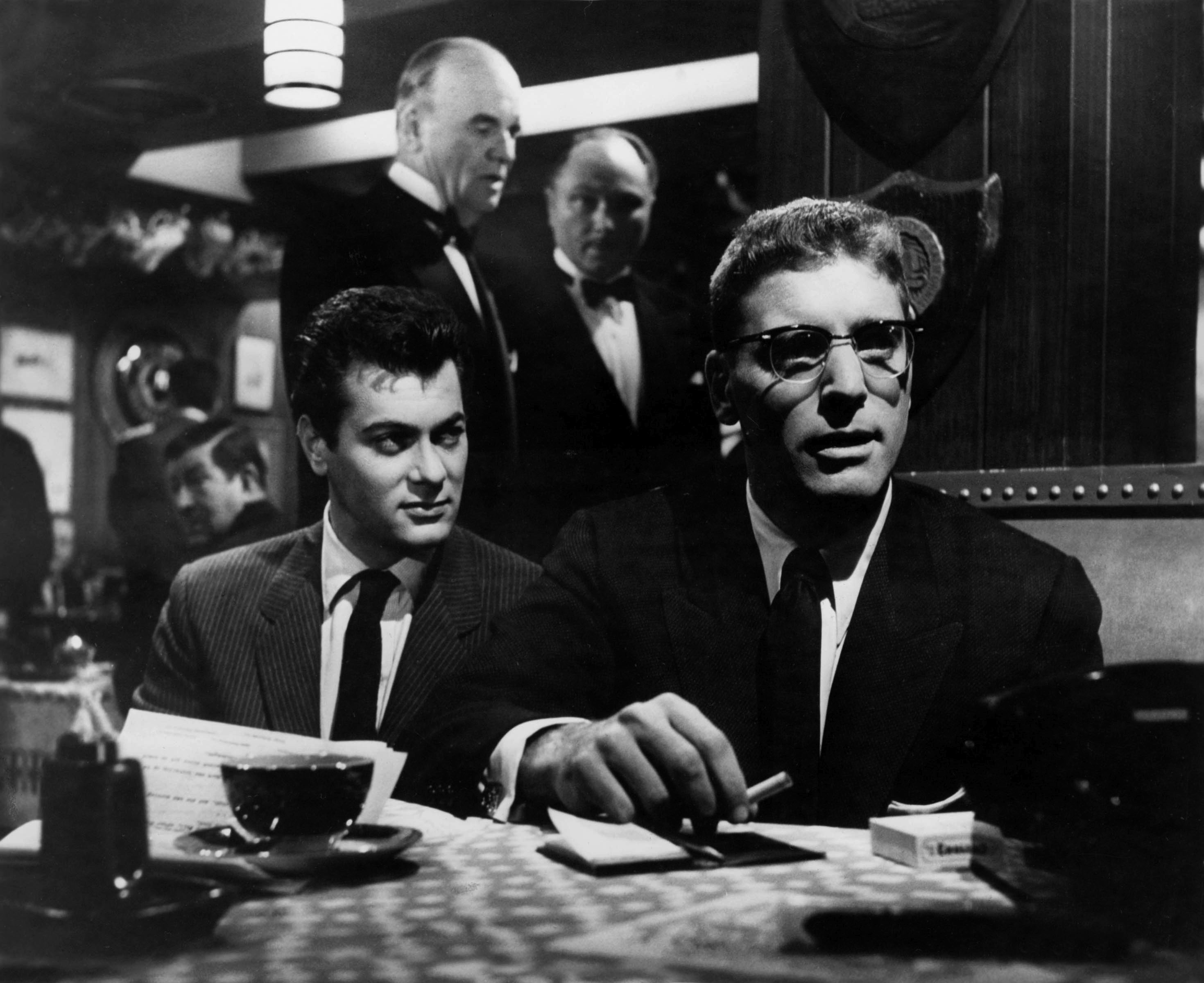Daring to reach: Burt Lancaster’s 12 best films
From The Crimson Pirate to Sweet Smell of Success, Lancaster resolutely refused to be typecast. To mark the anniversary of the star winning his one and only Oscar, Graeme Ross counts down 12 of his greatest performances

Your support helps us to tell the story
From reproductive rights to climate change to Big Tech, The Independent is on the ground when the story is developing. Whether it's investigating the financials of Elon Musk's pro-Trump PAC or producing our latest documentary, 'The A Word', which shines a light on the American women fighting for reproductive rights, we know how important it is to parse out the facts from the messaging.
At such a critical moment in US history, we need reporters on the ground. Your donation allows us to keep sending journalists to speak to both sides of the story.
The Independent is trusted by Americans across the entire political spectrum. And unlike many other quality news outlets, we choose not to lock Americans out of our reporting and analysis with paywalls. We believe quality journalism should be available to everyone, paid for by those who can afford it.
Your support makes all the difference.Daring to reach” are perhaps the best three words with which to describe Burt Lancaster, the hugely versatile actor with a background as a circus acrobat. The words form the title of a 1996 documentary about the star, and also serve as a metaphor for the risks Lancaster took in his film career, both as an actor resolutely refusing to be typecast, and as a powerful and fearless independent producer, one of the first Hollywood stars to form his own production company. And he was as able to straddle the fine balance between working within the studio system and his desire to make films on his own terms as surely as he once traversed the high bar in the big top.
A self-taught natural actor, Lancaster remained a star from his stunning movie debut in 1946’s The Killers until his extended cameo in the much loved Field of Dreams in 1989, switching effortlessly from his early action roles to more cerebral output as his career progressed. Sixty years ago on Saturday, Lancaster won his only Oscar for his barnstorming performance as the fake evangelist in Elmer Gantry. To mark the occasion, here is my pick of his 12 best films.
12. The Crimson Pirate (directed by Robert Siodmak, 1952)
“Nobody ever looked like Burt Lancaster in The Crimson Pirate,” his frequent director John Frankenheimer said of the producer/star of this exhilarating homage to the classic swashbuckler. Brilliantly utilising his skills as an acrobat, and all teeth, hair and muscles, Lancaster romps through this spectacular mix of thrills, stunts and tongue-in-cheek humour with absolute aplomb.
11. The Train (John Frankenheimer, 1965)
This terrific Second World War thriller stars Lancaster as a French railroad inspector and resistance leader harassing and harrying a Nazi officer intent on shipping priceless paintings into Germany. Spectacular train wrecks and Lancaster doing his own stunts are the highlights of one of the best train films, which also poses some interesting moral questions regarding the preservation of works of art at the expense of human lives.
10. The Birdman of Alcatraz (John Frankenheimer, 1962)
This is a long, engrossing study of double murderer Robert Stroud, who spent 54 years in prison, during which time he became a renowned authority on birds and their diseases. Lancaster’s beautifully judged performance earned him a third Oscar nod in this not strictly accurate but impressive film with the message that even those who have transgressed horribly, deserve a chance for redemption.
9. Ulzana’s Raid, (Robert Aldrich, 1972)
Easterner Lancaster took to the Western with ease and his third film with Aldrich is his best. A brutal cat-and-mouse game between the Apache and calvary is played out in Arizona’s harsh landscape with Lancaster’s grizzled scout’s sympathies lying firmly with the natives. Scottish writer Alan Sharp’s literate script is punctuated by episodes of graphic violence in this thinly-veiled Vietnam War allegory that can also be viewed as an indictment of America’s racial divide.
8. Elmer Gantry, (Richard Brooks, 1960)

“Elmer really wasn’t acting. It was me,” Lancaster said of his force-of-nature Oscar turn as the charlatan Evangelist with a gift for hellfire sermons, but a weakness for women and alcohol. A satire of the religious revival movement that swept through 1920s America, Elmer Gantry has a fantastic script from Brooks and a uniformly excellent cast, with Shirley Jones taking the best supporting actress Oscar. But it’s Burt’s movie all the way.
7. Local Hero (Bill Forsyth, 1983)
With the part written especially for him, and the film unlikely to be made without him, Lancaster enjoyed a happy shoot in Scotland and, unusually for him, a warm rapport with a director. Forsyth, joked Lancaster, “spoke no known language”, and the filmmaker confessed to hearing Lancaster’s unmistakable voice as he wrote the lines of the eccentric Texan oil magnate, Felix Happer. Lancaster’s performance is a joy as he effortlessly breezes through this movie, cited by many as Scotland’s greatest. (Have these people never seen A Shot at Glory?)
6. The Killers, (Robert Sidomak, 1946)
In this justly famous film noir, Lancaster is the prize chump who allows himself to be murdered by hitmen after he “did something wrong – once”. In the signature flashback scenes, an insurance investigator pieces together the mystery and needless to say, in the best traditions of noir, it involves a duplicitous dame and a convoluted plot. The overnight star cliché has never seemed so apt as Lancaster was catapulted to fame with his first screen appearance.
5. The Swimmer (Frank Perry and Sydney Pollack, 1968)

“I’m swimming home,” declares Lancaster’s outwardly successful suburbanite as he begins his surreal journey through his affluent neighbours’ pools in this perfect example of the actor’s risk-taking. All is not what it seems, however, in this fascinating adaption of John Cheever’s short story as the shallowness and eventual failure of the American Dream is literally laid bare. Lancaster dubbed this cult classic: “Death of a Salesman in swimming trunks.”
4. From Here to Eternity (Fred Zinnemann, 1953)
Zinnemann’s sensitive adaption of the controversial James Jones novel remains highly impressive. The eight-time Oscar-winner’s recreation of the Japanese attack on Pearl Harbour is a standout and the film remains a model of perfect casting. Lancaster garnered his first Oscar nod as the career soldier who is the backbone of his army unit, and he guaranteed screen immortality with Deborah Kerr for their love-making scene on the beach. But the scene I remember best is Lancaster leaping to his feet like a panther to confront Ernest Borgnine’s knife-wielding “Fatso”.
3. Atlantic City (Louis Malle, 1980)

This superb character study is set among the fading glories of the boardwalk city, focusing on the hopes and dreams of a bunch of misfits. Lancaster excels as an elderly small-time gangster reduced to working as nursemaid to a gangster’s widow while deluding himself that he was once a big shot. He salvages his pride after becoming involved with waitress Susan Sarandon, proving his mettle as a lover and a fighter. Lancaster’s unforgettable performance helped him win a Bafta after he lost the battle for the sentimental Oscar to Henry Fonda for On Golden Pond.
2. The Leopard (Luchino Visconti, 1963)
Lancaster had his dream role in this meticulously constructed epic as the ageing, fatalistic Sicilian prince witnessing the death throes of his ruling class during the Italian Unification. The director’s famous attention to detail makes for a wonderful spectacle with Lancaster’s magnificent performance of regret and longing at the heart of it all. His voice was dubbed, but that matters little – Lancaster’s resigned gestures and the hurt in those famous blue eyes tell the story just as movingly and eloquently as any dialogue.
1. Sweet Smell of Success (Alexander Mackendrick, 1957)

Lancaster exudes a chilling menace as a ruthless, all-powerful newspaper columnist and Tony Curtis proved he could act in this outstanding drama about the abuse of power. New York, with its smoke-filled nightclubs and rain-slicked streets, is vividly brought to life by James Wong Howe’s outstanding cinematography, adding a nightmarish, noir-esque quality, and the script burns. (“I’d hate to take a bite outta you. You’re a cookie full of arsenic,” Lancaster’s hack tells the publicist.) Too cynical for some tastes, Sweet Smell bombed spectacularly, but Lancaster knew that as both producer and star, he had made great art.



Join our commenting forum
Join thought-provoking conversations, follow other Independent readers and see their replies
Comments